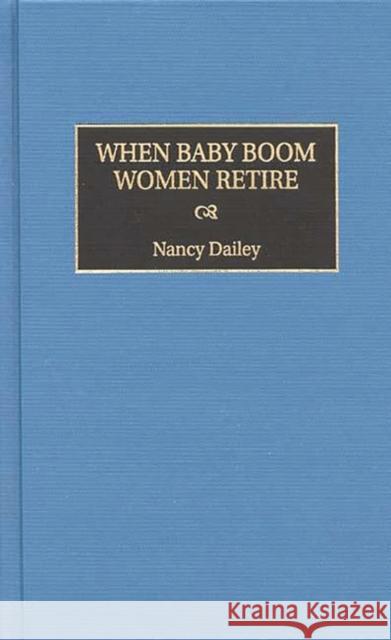When Baby Boom Women Retire » książka
When Baby Boom Women Retire
ISBN-13: 9780275960704 / Angielski / Twarda / 1998 / 168 str.
When Baby Boom Women Retire
ISBN-13: 9780275960704 / Angielski / Twarda / 1998 / 168 str.
(netto: 343,70 VAT: 5%)
Najniższa cena z 30 dni: 355,74
ok. 30 dni roboczych.
Darmowa dostawa!
Fewer than 20% of Baby Boom women will experience a secure retirement. Marriage, education, occupation, home ownership--these variables predict their future. Possession of all four indicates retirement security, and absence of any increases risk of old-age poverty. This riveting sociological study also examines the social relations and structures that will determine the retirement experience, options, and decisions for more than 40 million Baby Boom women. These women's material base and social status are examined through the use of empirical data, and the key predictors of their retirement are identified.
The massive entry of Baby Boom women into the labor force increases the importance of retirement planning for working women. It comes at a time when existing research models and data are outdated and inadequate to effectively predict their future retirement experience. Over the past 30 years, American men and their spouses have benefited from the linear, undifferentiated model of the traditional male retirement. For the Baby Boom generation, however, the nature of work has changed significantly. The current retirement model may not serve Baby Boom men as well as in the past, let alone Baby Boom women. In contrast, this book offers a new, dynamic model that considers the social and work structures influencing women's lives and that accurately reflects the predictors and parameters of Baby Boom women's retirement.











